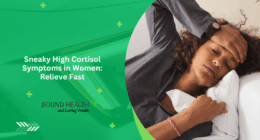Years of office working – alongside make-shift work spaces at home – has lead to hordes of people complaining of back pain. How can you tell when it’s indicative of something serious?The NHS certified that “additional symptoms” in tandem with back pain could be indicative of a “medical condition”. In order for this classification to apply, the additional symptoms tend to be:
- Numbness
- Weakness
- A tingling sensation.
Such symptoms may be caused by a slipped prolapsed disc or sciatica.
A slipped prolapsed disc
Also referred to a prolapsed or herniated disc, the condition becomes “painful” when the soft tissue cushioning the bones in the spine protrude outwards, hitting a nerve.
It can lead to lower back pains, tingling in the shoulders, back, arms, hands, legs, or feet, and/or neck pain.
This condition may also cause issues with bending or straightening your back.
Exercises to help recover from a slipped disc
“The type of exercise is not important, just gradually increase your activity level,” said the NHS.
Begin exercising in any way that feels comfortable; do not exert yourself so that you’re in pain, otherwise the slipped disc may take longer to heal.
The use of painkillers, such as ibuprofen and paracetamol, could help to manage feelings of pain.
However, the overuse of paracetamol is not recommended – it’s best to alternative paracetamol with ibuprofen.
If the back pains continues for a month, painkillers aren’t helping, and the pain is worse at night, book a doctor’s appointment.
Seeking medical expertise is also warranted if you experience:
- A fever while feeling hot and shivery
- Unexplained weight loss
- A swelling in your back.
A doctor might prescribe a stronger painkiller, a steroid injection, or a muscle relaxant for short-term pain relief.
Further medical intervention might include an MRI scan and a referral to a physiotherapist.

What causes a slipped disc?
- Ageing
- Exercising too hard
- Lifting heavy objects the wrong way
- Vibration from driving or operating machinery
- Being inactive or overweight.
Sciatica
The sciatic nerve runs from your lower back to your feet and, when it’s irritated or compressed, pain can continue for up to six weeks.
The defining feature of sciatica is when your bottom, back of your leg, foot or toes feel a “stabbing, burning or shooting” sensation, or it can feel like pins and needles, numb, or weak.
“Your symptoms may be worse when moving, sneezing or coughing,” added the national health service.
“You may also have back pain, but it’s not usually as bad as the pain in your bottom, leg or foot.”
To help relieve sciatica pain, it’s important to remain as active as possible.
Heat packs can be helpful in easing the pain, as can placing a firm cushion between your knees when sleeping on your side.
If you’re sleeping on your back, place a cushion under your knees to help relieve painful symptoms.
Post source Daily Express









Comments are closed.